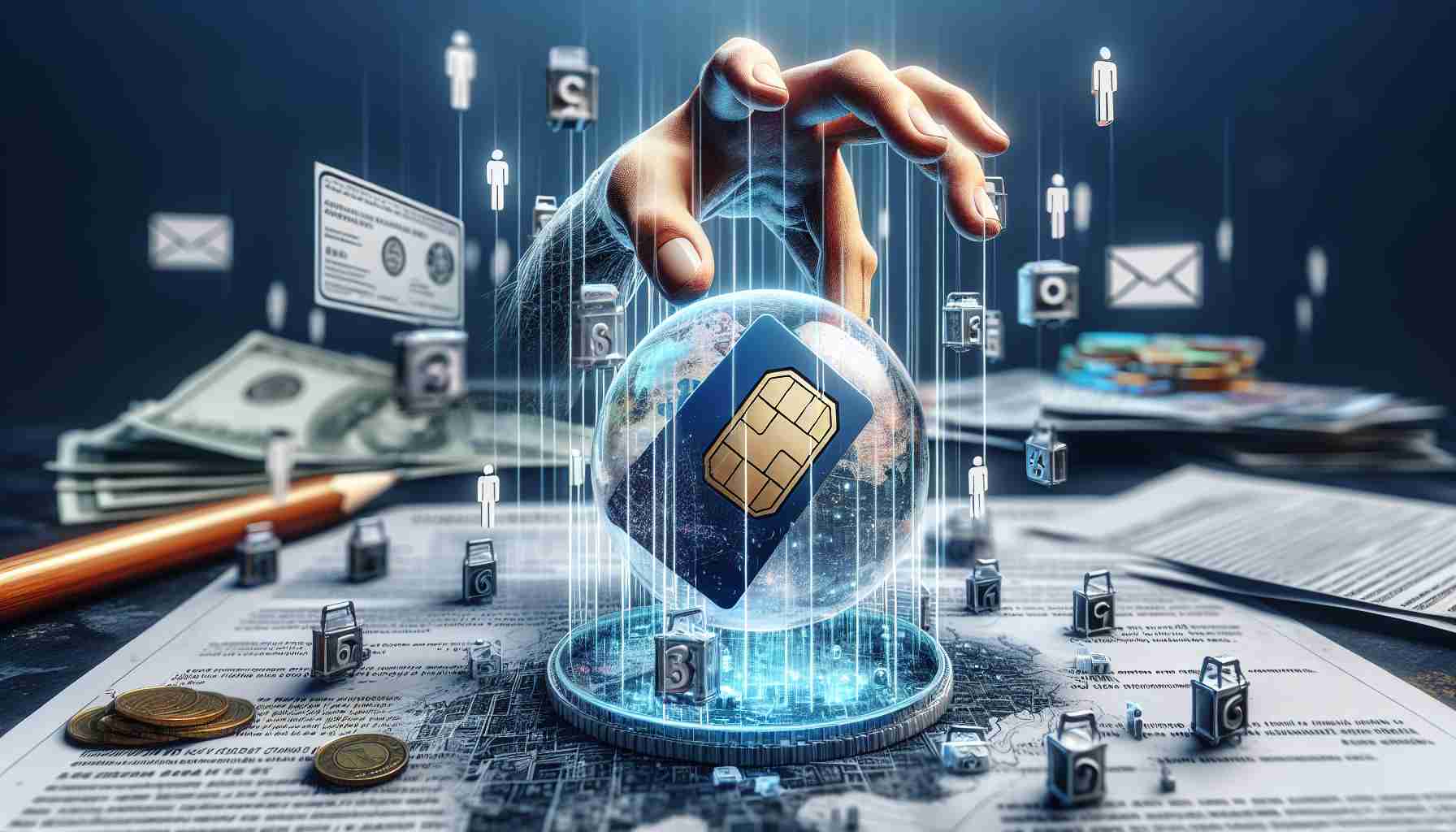Pakistan’s tax authority has taken a strong stance against tax evasion by blocking the SIM cards of 210,000 users who have failed to file tax returns. This move is aimed at expanding the country’s revenue bracket, as only a fraction of the population filed income tax returns in 2022. The Federal Board of Revenue (FBR) passed the order in April and has already restored 62,000 SIM cards after their owners paid their taxes.
“We have to make ways for people to pay their taxes,” said FBR’s public relations official Bakhtiar Muhammad. However, critics argue that this approach is unfair since not everyone who owns a SIM card earns enough to fall into the tax-paying category. Fareiha Aziz, a digital rights activist, sees this move as an overreach, stating that “people’s livelihoods are tied to their phones.”
Pakistan, with over 192 million cell phone subscribers and four telecommunications providers, relies heavily on the telecom industry for essential services, including access to information, education, and emergency services. This has led to concerns among telecommunications companies that abrupt tax measures could disrupt the provision of these critical services.
The South Asian country is facing challenges in expanding its revenue base due to its largely undocumented economy. In order to stabilize its finances, Pakistan has been seeking financial assistance from the International Monetary Fund (IMF). However, the IMF has urged the government to do more to mobilize its own resources before providing additional loans.
The recent crackdown on SIM card users for tax evasion has been met with criticism from experts, who argue that it infringes upon freedom of expression and violates rights. Furthermore, telecommunications companies have raised concerns that these measures could deter foreign investment. The government may need to consider more sustainable approaches to increase tax revenue without compromising essential services and individual rights.
Additional facts not mentioned in the article but relevant to the topic:
1. Pakistan’s tax-to-GDP ratio is relatively low, standing at around 12.6% in 2022.
2. The blocking of SIM cards is part of the government’s broader crackdown on tax evasion, which includes measures such as increased monitoring of financial transactions and stricter enforcement.
3. The FBR has set a target to increase the number of income tax filers from 3 million to 7 million by the end of 2023.
4. The FBR has also launched a mobile application called “Tax Asaan” to make it easier for individuals to file their taxes online.
5. The SIM card blockage is not limited to individual users but also includes businesses and organizations that have failed to file tax returns.
6. The FBR has stated that it will not permanently block SIM cards and that restoration can be done once the owner pays their taxes.
Most important questions and answers:
1. Why is Pakistan cracking down on SIM card users for tax evasion?
Pakistan is cracking down on SIM card users for tax evasion to expand its revenue bracket and increase tax compliance. The government aims to boost its tax-to-GDP ratio and stabilize its finances.
2. Are all SIM card owners required to pay taxes?
Not all SIM card owners are required to pay taxes. The tax obligation depends on the individual’s income level and whether they meet the threshold for income tax filing. Critics argue that the crackdown is unfair as it may affect people who do not earn enough to fall into the tax-paying category.
3. What are the concerns raised by telecommunications companies regarding the SIM card blockage?
Telecommunications companies are concerned that the abrupt tax measures and SIM card blockage could disrupt the provision of essential services, including access to information, education, and emergency services. They are also worried that these measures could deter foreign investment.
Key challenges or controversies associated with the topic:
1. Infringement upon freedom of expression: Critics argue that the blocking of SIM cards for tax evasion infringes upon freedom of expression, as people’s livelihoods are increasingly tied to their phones and access to communication.
2. Violation of rights: There are concerns that the crackdown on SIM card users violates individual rights, particularly privacy rights and the right to access essential services.
Advantages and Disadvantages:
Advantages:
– Increased tax compliance and revenue generation for Pakistan’s government.
– Enhanced documentation of the economy, which can lead to improved financial stability.
– Discouraging tax evasion and promoting tax morality.
Disadvantages:
– Potential disruption of essential services due to the abrupt blocking of SIM cards.
– Unfairness for individuals who may not earn enough to fall into the tax-paying category.
– Potential negative impact on foreign investment due to concerns over the government’s approach to taxation and individual rights.
Suggested related links:
– Federal Board of Revenue
– International Monetary Fund (IMF) – Pakistan



















